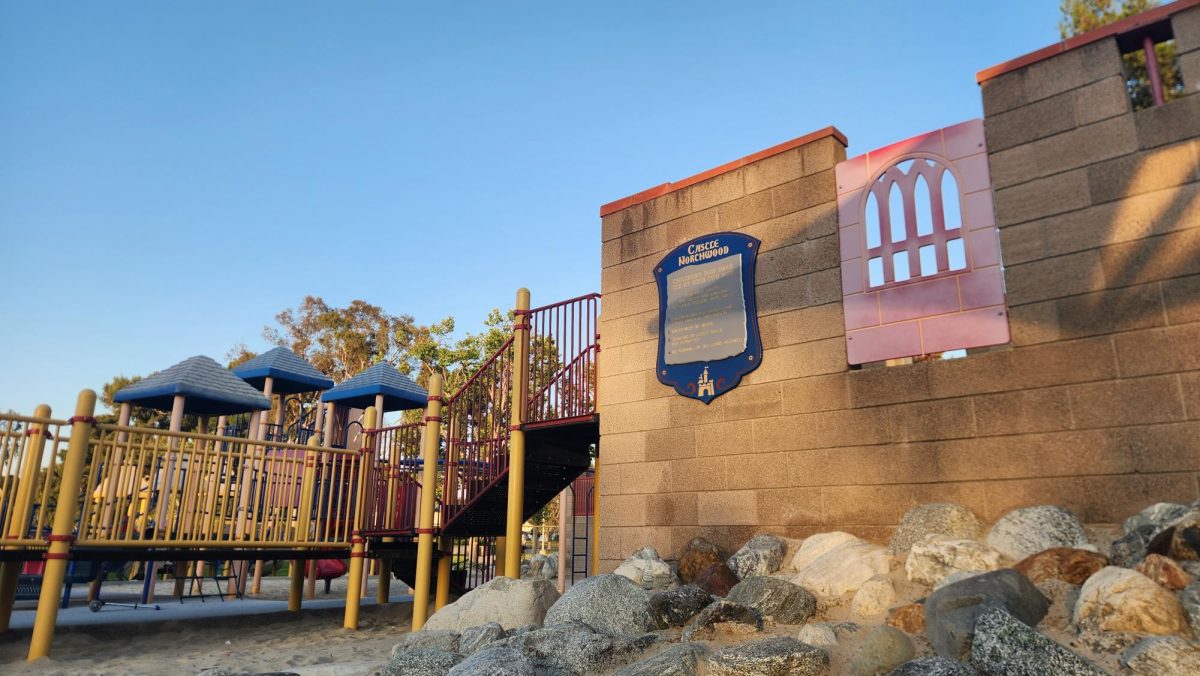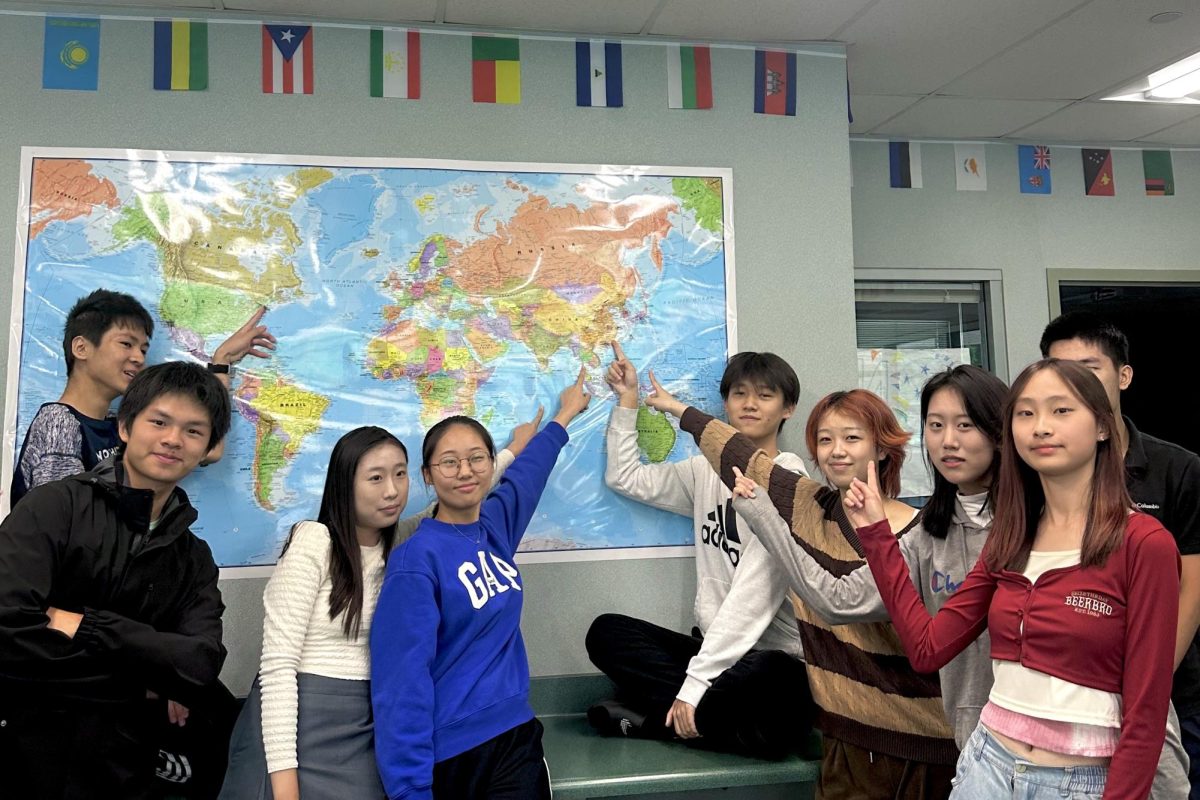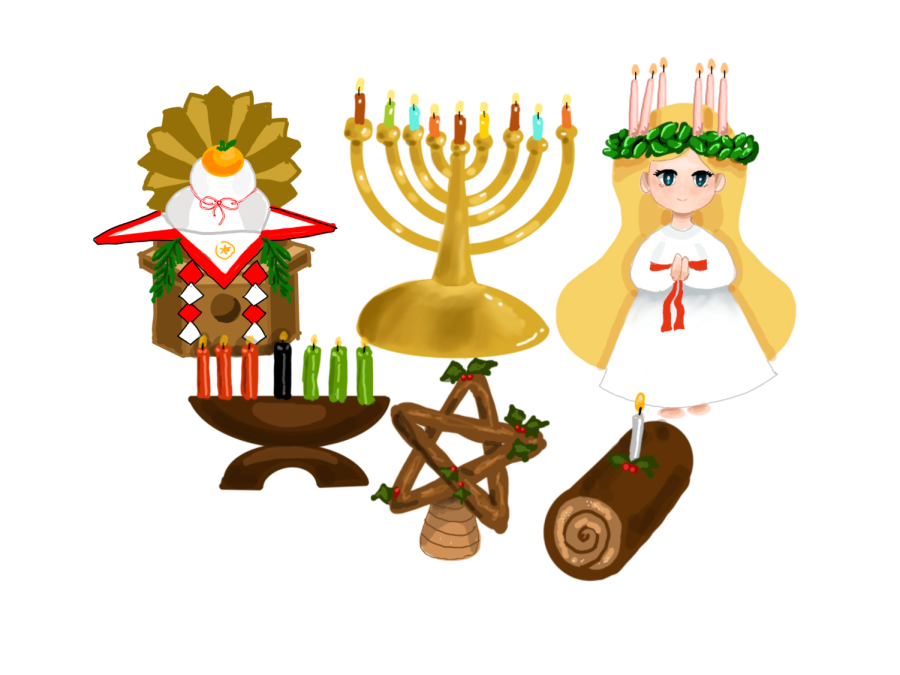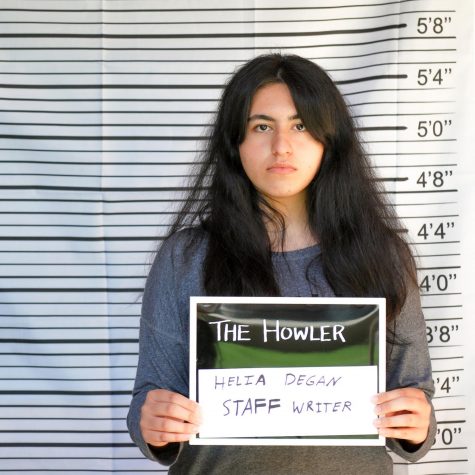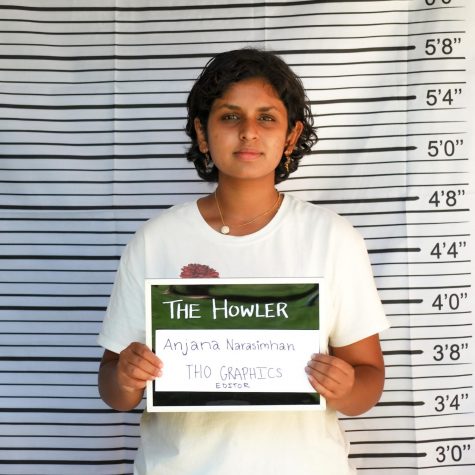Diverse December holidays
MANORAS TO KAGAMI-MOCHI: December holidays beyond Christmas
December 8, 2021
Many holidays are celebrated by diverse cultures around the world in December. Let’s take a look at five holidays celebrated at Christmastime around the world based on different religions or cultures.
1. Hanukkah (Also known as Chanukah or Festival of Lights)
Hanukkah is an eight-day Jewish festival celebrating the Second Temple of Jerusalem and its rededication after the Jewish people in second century B.C. successfully led the Maccabean revolt against the Syrian-Greek army, which had previously desecrated the holy temple. Fittingly, Hanukkah means “dedication” in Hebrew.. This holiday traditionally begins on the 25th day of Kislev according to the Hebrew calendar and will be recognized between Nov. 28 through Dec. 6 in 2021. In the celebration, many light the candles of a menorah (a candelabrum with nine branches) every night, exchange gifts, sing traditional songs like “Ma’oz Tzur” and recite the Hallel prayer. Holiday foods include oil-dried food like potato pancakes.
2. Saint Lucy’s Day (Also known as Feast of Saint Lucy or Santa Lucia)
Widely celebrated in Scandinavia, Sweden, and Italy, this is a Christian feast day and festival of lights that pays tribute to Lucia of Syracuse, an Italian martyr who, in some stories, is said to have brought aid to Christians hiding in the Roman catacombs during the Diocletianic Persecution, wearing a candle-lit wreath. Thus, she is seen as a symbol of the Light of Christ amidst the darkest places. Concerts are held featuring singers dressed up in white clothing and red headdresses with flickering candles.
3. Yule (Also known as Yuletide)
Yule is a ancient pagan holiday celebrated by the Germanic people that originally paid tribute to the winter season and the Norse god Odin, lasting twelve days and starting on the Winter SolsticeThis holiday is primarily celebrated by lighting a yule log in the fireplace or a bonfire as well as decorating Yule trees and cutting mistletoe. Yule was largely reformulated by Christians, which is why its traditions are often used in Christmas celebrations.
4. Kwanzaa
This African holiday is based upon African harvest festival traditions and derived its name from the Swahili phrase matunda ya kwanza, which means “first fruits.” Created by Dr. Maulana Karenga in 1966 after the Watts Riots, Kwanzaa was intended to be an alternative to Christmas for African Americans. Kwanzaa celebrates seven principles: Umoja (unity), Kujichagulia (self-determination), Ujima (collective work and responsibility), Ujamaa (cooperative economics), Nia (purpose), Kuumba (creativity) and Imani (faith). Towards the end of the celebration, which can consist of singing, dancing and storytelling, a rich traditional feast called “Karamu” is given, including African creole, Cajun catfish, jerk chicken, groundnut stew, and many more food items.
5. Ōmisoka
This is a Japanese holiday occuring on the final day of the year. Some choose to visit shrines or temples at midnight during the countdown, where they have large cast bells that are stuck once for each of the 108 earthly temptations that cause human suffering (stemming from Buddhism). An hour prior, families gather and eat a bowl of traditional toshikoshi-soba or toshikoshi-udon, which symbolize the transition from the old year to the new year. Other activities include house cleaning and bathing to start fresh for the upcoming year.










